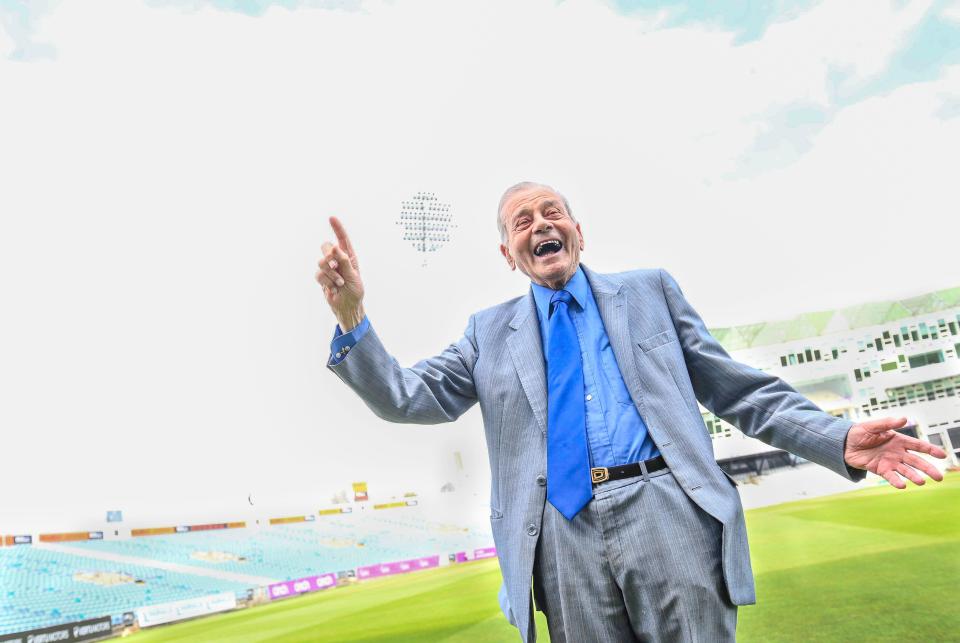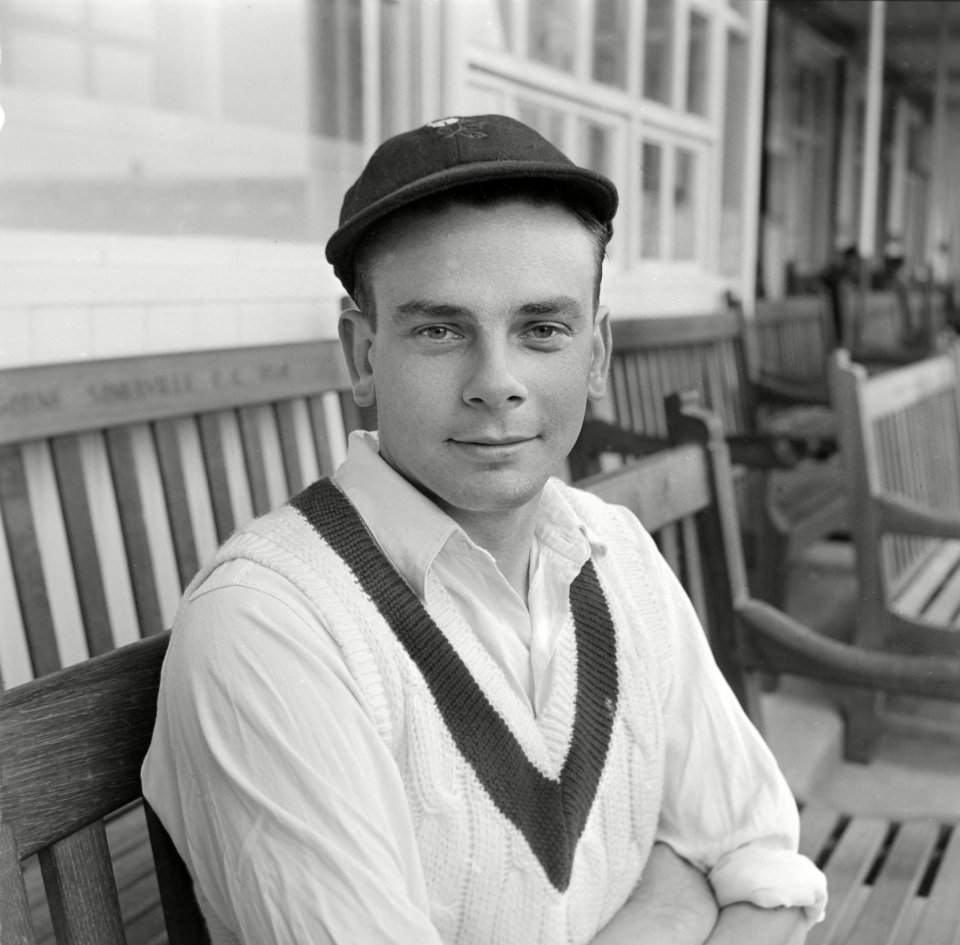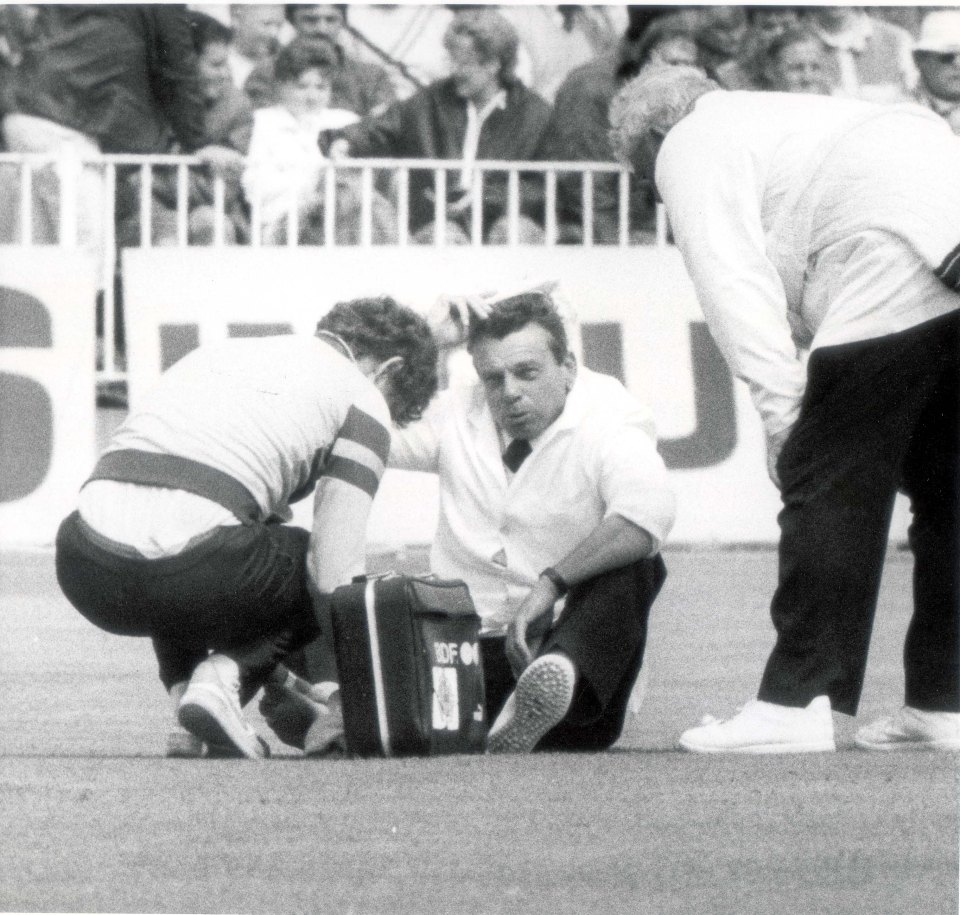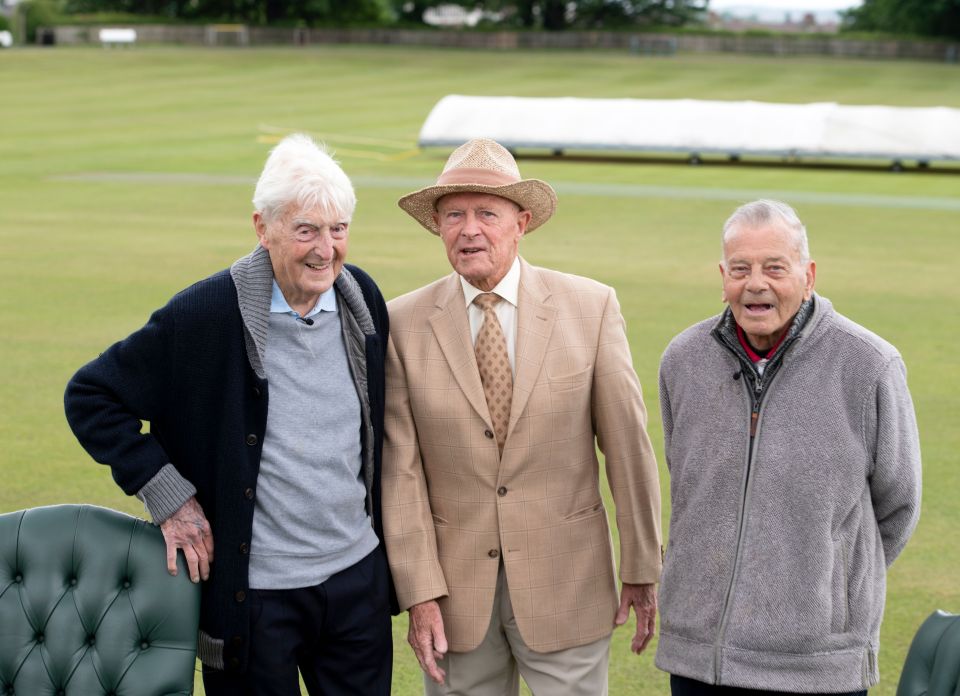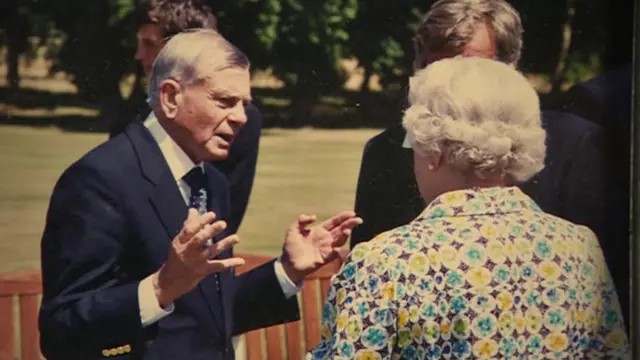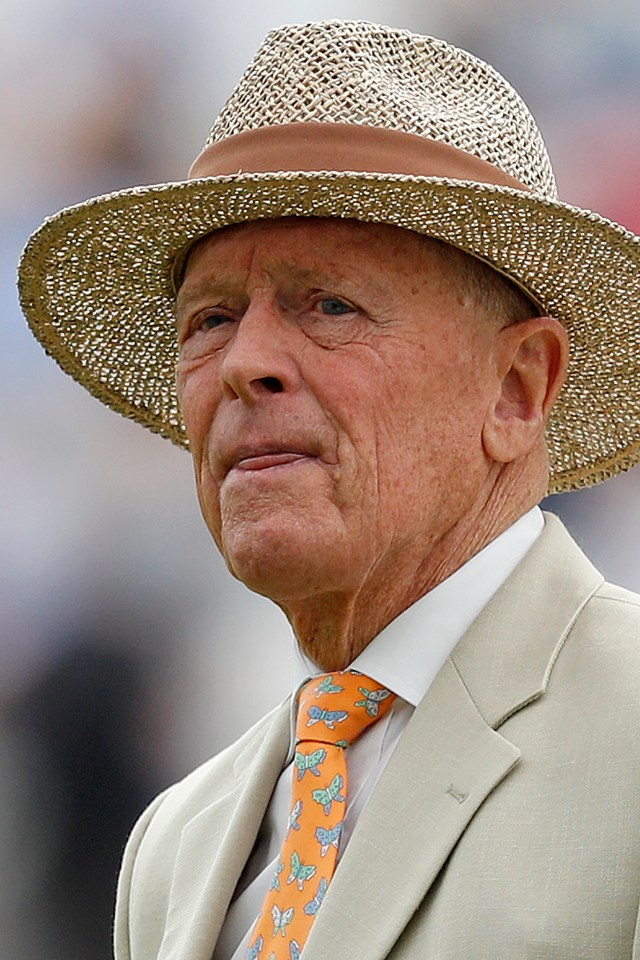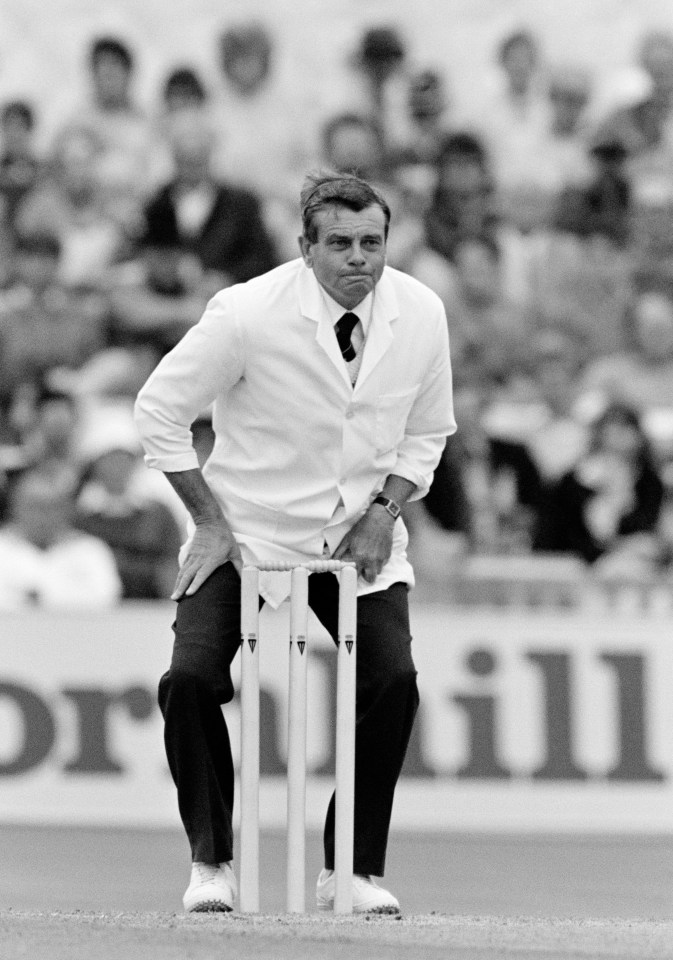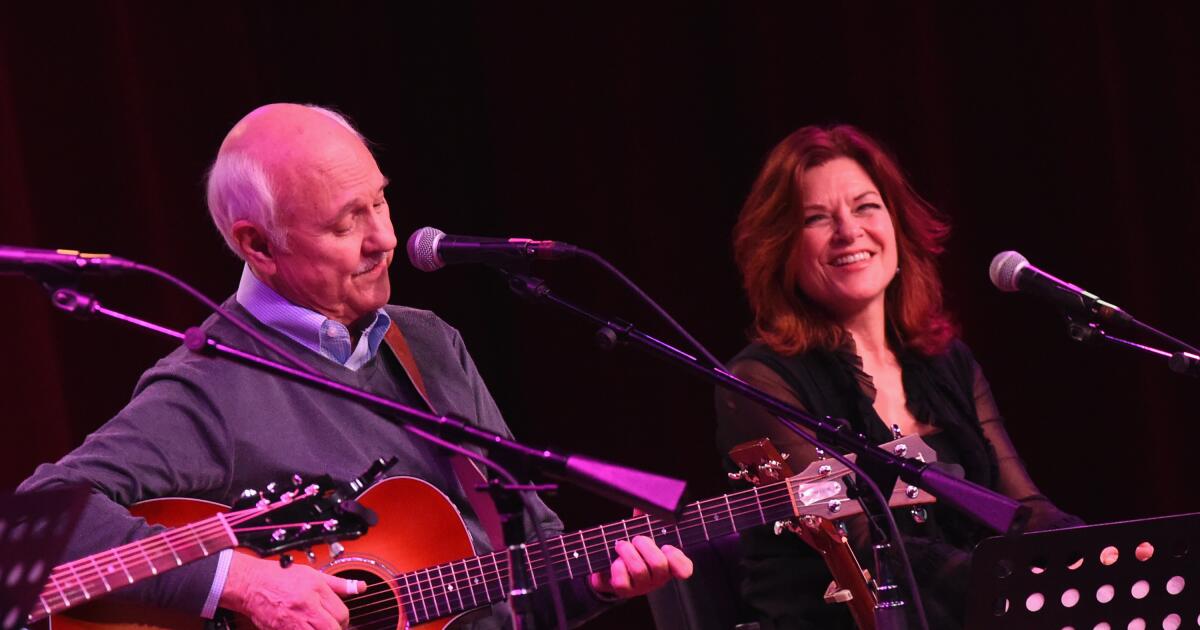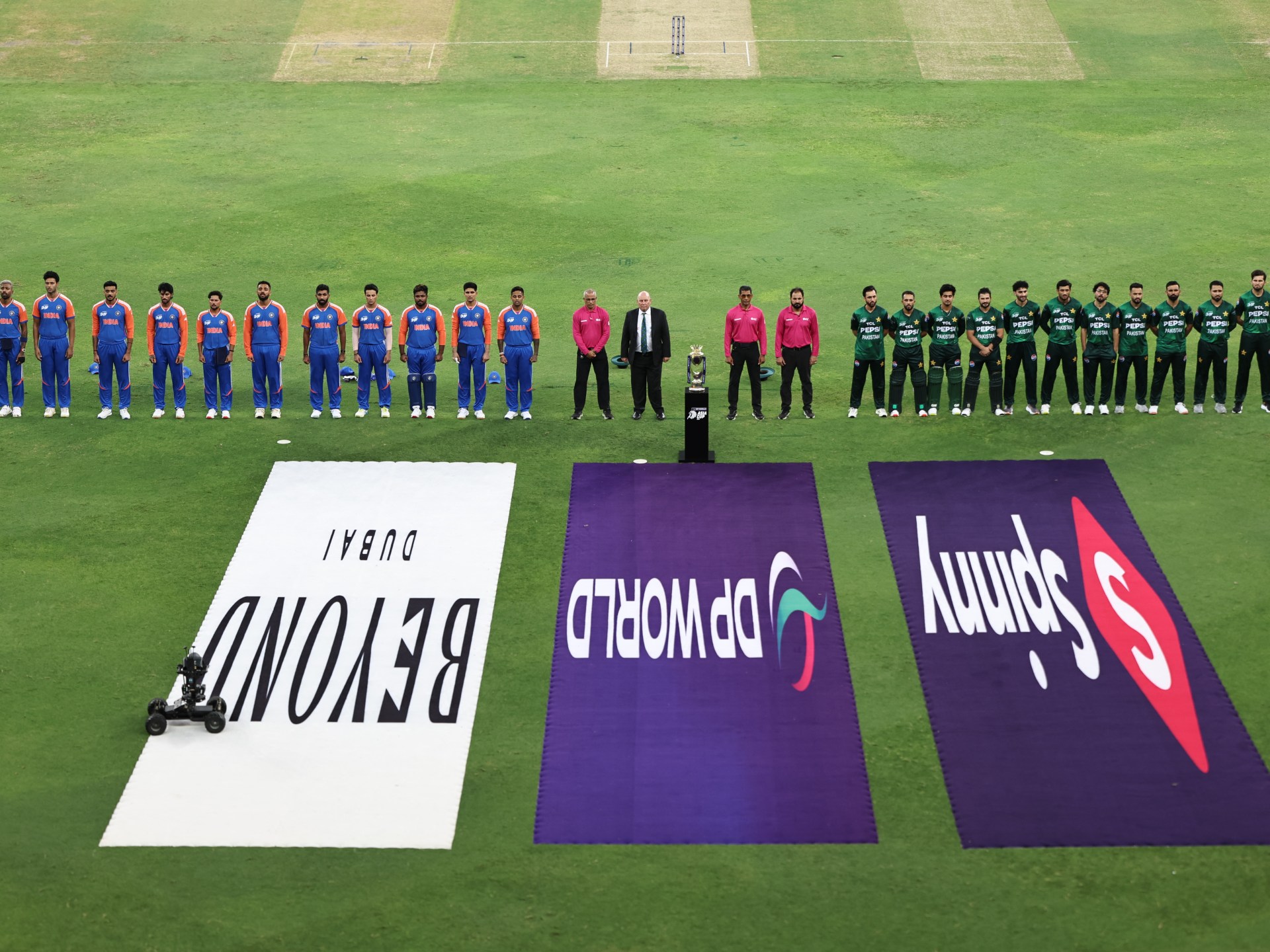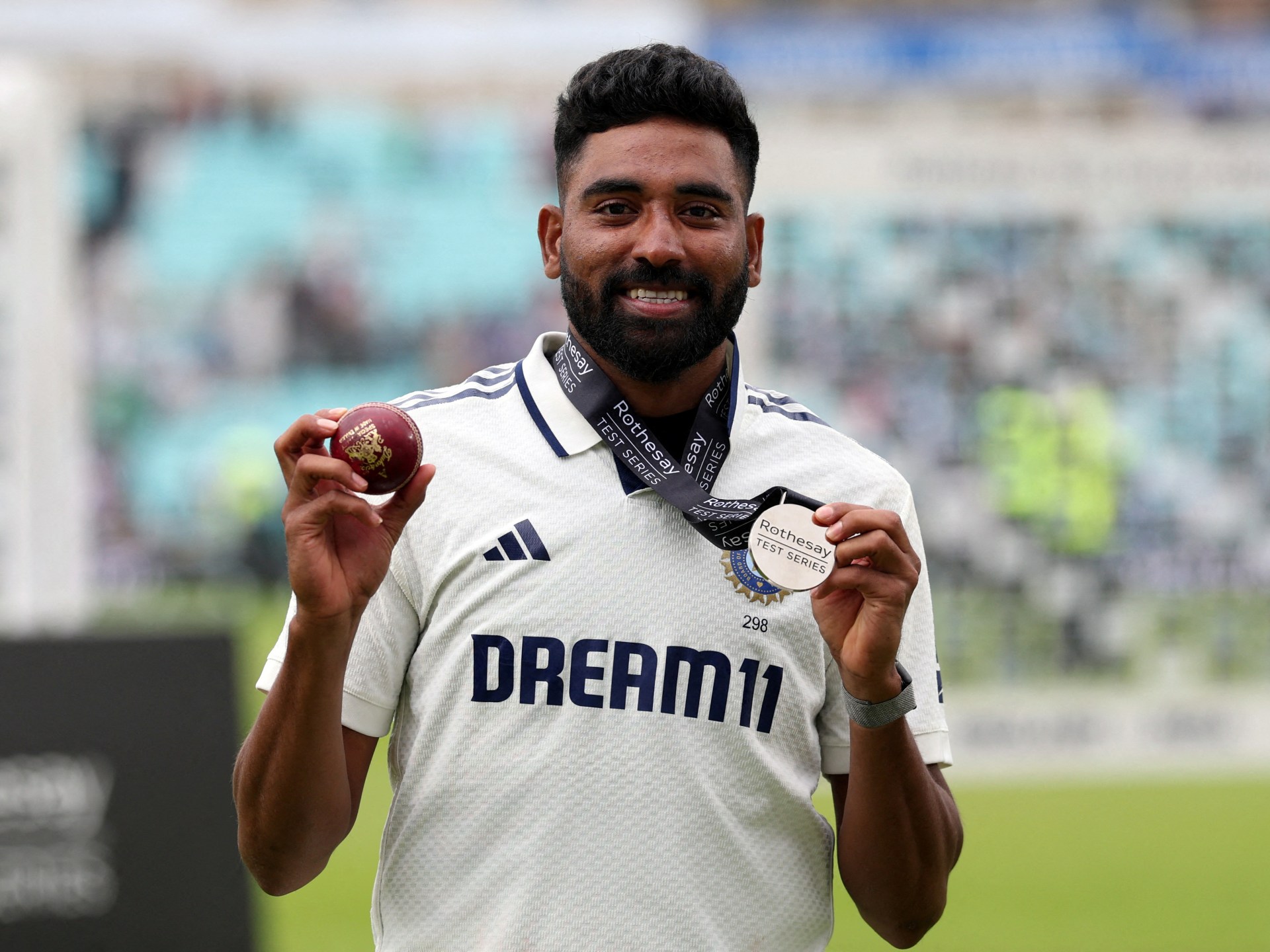How down to earth bachelor Dickie Bird went from miner’s son to cricket’s most famous umpire with huge army of fans
HE was the down-to-earth Yorkshireman with one of the most famous gestures in sport.
The way cricket’s most famous umpire Dickie Bird gave batsmen their marching orders — lifting his arm, oh so slowly, index finger outstretched — became his trademark.
Miner’s son Dickie, who has died at the age of 92, was as much a part of British summers as, well, the sound of bat on ball.
He will be remembered as the man whose popularity broke down the divide between the game’s officials and players — also winning him a huge army of fans way beyond the boundary rope.
Generation after generation watched as Dickie, real name Harold Dennis Bird, umpired 66 tests and 69 one-day internationals, including three World Cup finals, with fairness and humour while reining in the most cantankerous of players.
Dickie, who never married, is expected to leave his multi-million- pound fortune — most of it made when he published his autobiography in 1997 — to children’s hospitals which he often visited.
After his death was announced by Yorkshire County Cricket Club, tributes flooded in for the lord of LBW — when umpire adjudges ball to have hit leg before wicket.
A club statement read: “Dickie Bird enjoyed an illustrious career as an international umpire, writing his name into history as the most famous and popular official in the game’s history.
“He is synonymous with Yorkshire cricket, where he has been one of the most loyal supporters.”
The club named the former Yorkshire batsman as its president in 2014 and said it was a role he held with “pride and distinction” as the club won two country championships during his tenure.
It added that Dickie, awarded an MBE in 1986 and OBE in 2012, had become known “not only for his umpiring excellence but also his eccentricities and warmth”.
Leading the tributes was Yorkshire and England cricket great Sir Geoffrey Boycott.
‘Never officious’
The legendary opening batsman said of the umpiring great: “Dickie was a character, always fun. He was respected, admired and loved. A cricket icon.
“He was brilliant because he made a lot of good decisions but also he had humour and a firmness. He could handle players.
“You could talk to him. He would listen. But chatting him up did not change his mind. No chance. He would laugh with you instead.
“He would never be officious. He just had a way of defusing situations. That was his strength, why he was rated all over the world as the best.”
Boycott first met Dickie in 1955, when they played for Barnsley Cricket Club — and the pair were also friends there with another Yorkshireman who later found fame, the late TV host Sir Michael Parkinson. The three would remain pals for life.
He added of Dickie’s cricket: “I was slightly in awe, nearly every time he went out to bat he would score a 50.
“I was shocked when he would come up to me and say, ‘Put my gloves on for me, Gerald’. I would say, ‘My name’s not Gerald, it’s Geoffrey’. It made no difference because he would say, ‘OK, put the gloves on for me Gerald’. He called me Gerald for years.
Former England captain and opening bat Graham Gooch also has fond memories of Dickie — and the time one of his shots struck him during a match against Australia at Old Trafford in 1985.
Gooch told talkSPORT: “He tried to get out of the way of the straight drive but it hit him on the ankle. He wasn’t averse to making a bit of a song and dance about things — and he had to go off for treatment.”
Dickie was also in the middle when Gooch played his most famous innings — scoring 333 against India at Lord’s in 1990.
But Gooch added: “Things always happened to Dickie in the field. At Headingley, once they had a leaking pipe, right where he was standing, coming up like a sprinkler. It could only happen to him.”
BBC cricket correspondent Jonathan Agnew said of Dickie: “He was a terrific umpire, the players loved him.”
Others taking to social media to pay respects ranged from ex-Prime Minister David Cameron to former Liverpool and Nottingham Forest striker Stan Collymore.
Dickie was born in Barnsley — where he still lived before his death, although he swapped a two-up, two-down terrace with outside toilet for a luxury 16th-century four-bedroom cottage on the edge of the Pennines.
His dad Harold worked in the coal mines from the age of 13 until 65, but wanted better for his son.
Dickie was a character, always fun. He was respected, admired and loved. A cricket icon.
Sir Geoffrey Boycott
Dickie said: “My father would not let me go down the mine. ‘No way!’ he said. He instilled in me that I would play sport for a living.
“He would get up at four each day and go to the pit and when he came home in the afternoon, although tired, would spend hours with me playing cricket and football.”
Dickie’s teenage years at Barnsley Cricket Club were happy ones, as were the friendships he made with Boycott and Parkinson.
He wept as he recalled his final conversation with Parky, the day before his friend’s death in August 2023, aged 88.
Dickie said: “We cracked a few jokes together, we had a few tears in our eyes and we said goodbye, goodbye to each other at the end of the phone call as if we had this feeling that we wouldn’t see each other again and we said goodbye and that was it.
“It was so sad when I heard the news [of his death]. I slumped in my chair and shed tears.”
Another childhood pal was Tommy Taylor, the England and Manchester United centre forward, who died in the Munich air crash of 1958.
Two years earlier, Dickie had made his first-class debut for Yorkshire as a right-hand batsman.
Fervent royalist
He left the club after three years, and spent three more years with Leicestershire before a knee injury forced him to hang up his bat and he switched to umpiring.
He became the first umpire to attract queues of autograph hunters and was so popular with the females that women hung pairs of pants on his statue in his home town.
So popular was he in Barnsley that a local car dealership gave him a motor emblazoned with his name, urging drivers to follow him to their showroom. On the driver’s side they painted him sat at the wheel in his umpiring whites.
Dickie was a fervent royalist who met Queen Elizabeth II 29 times and remembered the time he had lunch with her in 1990.
He also told how he was so nervous about lunch that he turned up at the gates of Buckingham Palace more than four hours early.
He said: “The Queen laughed when I told her and said, ‘You better have a drink’.
“Prince Edward joined us, we had a magnificent lunch, and then it was just the Queen and I in the lounge all afternoon.
“She had a lovely sense of humour. We talked about cricket and horse racing. She said, ‘We think the world of you and we think you do a good job’. That were the best day of my life.”
The pair then kept in touch. “I had a letter from her a fortnight before she died,” Dickie said after her death in September 2022, aged 96.
“She asked about my health, ‘How are you keeping?’, I used to write back and say, ‘You need to keep going, Ma’am. You’ve got to get there — 100 if you can.
“She was the rock of this country. Magnificent.”
It was just the Queen and I in the lounge all afternoon. We talked about cricket and horse racing. She said ‘We think the world of you and we think you do a good job’. That were the best day
of my life.Dickie Bird
Dickie was an ambassador for the Children’s Heart Surgery Fund at Leeds General Infirmary and is expected to leave his money to kids’ hospitals after being reduced to tears during visits across the UK.
It is not known how big his estate is but humble Dickie — who counted a £5 glass of wine at his local restaurant as a treat — donated £35,000 to London’s Great Ormond Street Hospital, £70,000 to Barnsley Hospital and £30,000 to the children’s fund at Leeds General.
He said: “When I visit these hospitals and see sick little babies needing surgery, or cut from their groin to their neck after heart operations, I break down in tears. I am not ashamed to admit it.”
His money-spinning, self-titled autobiography sold more than a book about Princess Diana, after her death the same year.
But ever-modest Dickie said: “Never in my wildest dreams did I think it would go to the bestsellers’ list, and beat even Diana’s book.”
His devotion to cricket left little time for much else, and he admitted he regretted never marrying and having children.
He said during the Covid lockdown: “If I miss having something in life, it’s having a family. I’ve had girlfriends. I nearly married twice. But I never married because in cricket you are never at home. I thought it would never work.
“It would have been wonderful to have a lad and watch him play. I missed that. But you can’t have everything. I gave myself to cricket, and it has given me a real good life.”
CELEB TRIBUTES POURED IN
Graham Gooch: “We all remember him as a brilliant umpire, respected all over the world. He got on with all the players. We didn’t always agree with his decisions but he was a good umpire if you were a batter. You had to be a plumb for him to give you out [LBW].”
David Cameron: “So sorry to hear that the great Dickie Bird has pulled stumps. He was a national treasure and I was fortunate to have shared some hugely enjoyable times with him over the years. At 92, he had a good innings. Farewell, friend.”
Stan Collymore: “For several generations his name simply meant cricket, such was his association with the sport he served so well and loved so much. Rest in peace, Dickie.”
Jonathan Agnew: “Mishaps would occur. Bad light would always come when Dickie was umpiring. The pitch flooded one time because there was a problem with the drainage system. He took players off once because it was too light at a Test match at Old Trafford as sunlight was shining off the glass roof.”
Piers Morgan: “He loved the game with a rare all-consuming passion and the game loved this brilliantly professional, ebullient, emotional and perfectionist Yorkshireman.”
